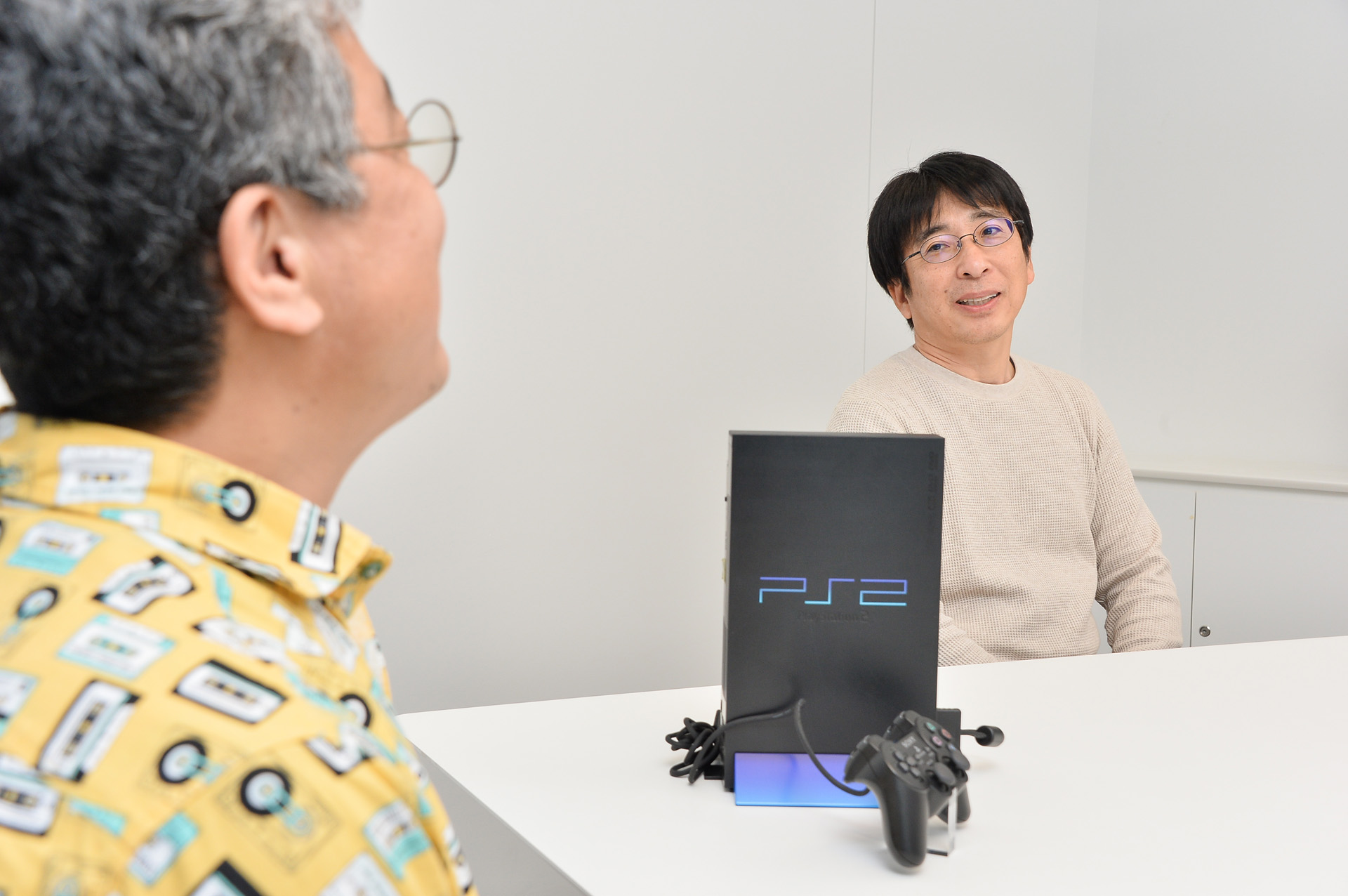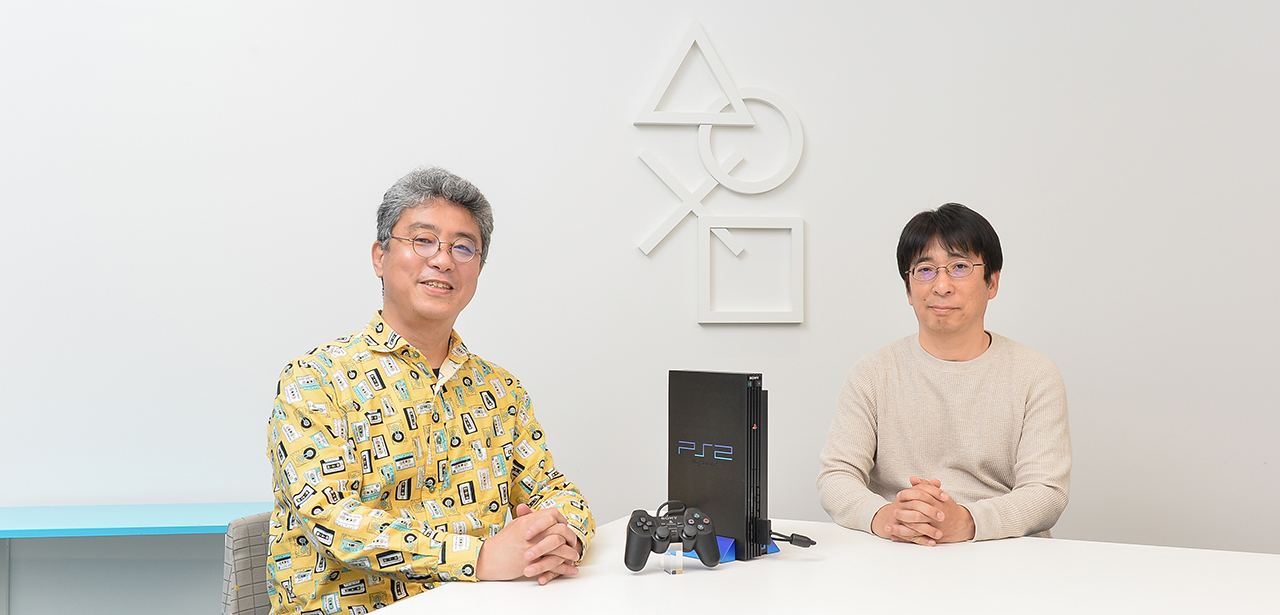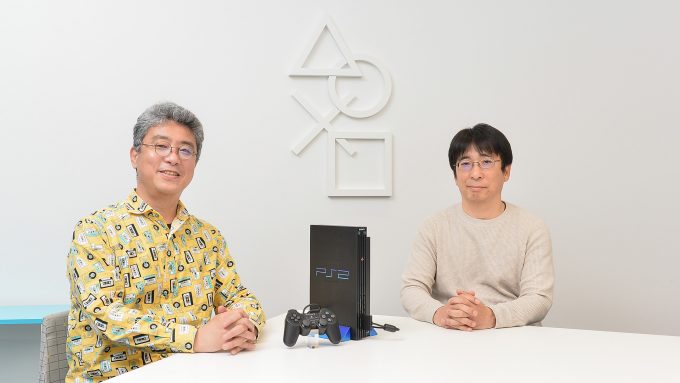“WE DISCUSS VANA’DIEL” is a series of conversations between Producer Matsui and special guests who are familiar with FINAL FANTASY XI (FFXI). This installment focuses on the PlayStation 2 (PS2), the platform which supported FFXI since its launch in 2002 until 2016. Our twelfth guest is Muneki Shimada of Sony Interactive Entertainment (SIE), who was involved in developing the online aspects of the PS2 since the early stages of the FFXI project. How did he perceive the first full-fledged MMORPG for consoles? In this second part of the conversation, Mr. Shimada gave us insight on the discussions held between the PS2 development staff and the FFXI team regarding online features and the BB Unit.

Vice President of Sony Interactive Entertainment, who currently resides in the United States. After joining Sony Computer Entertainment (SCE; now Sony Interactive Entertainment) in 1998, he helped develop the PlayStation 2 and the PlayStation BB Unit. He has since been involved in a wide range of development projects, including those for the PlayStation Portable (PSP) and PlayStation Network (PSN), as well as providing technical support for game developers around the globe.
An unfamiliar territory for consoles
- Matsui
You mentioned you were “fumbling in the dark” when finding ways to make use of the PS2’s online features, but when did your objectives become clearer?
- Shimada
Our vision from the early stages of development was for the PS2 to be capable of using peripherals designed for PCs, as you can see from the USB ports on the PS2; however, we didn’t really have a clear picture of what that would be like. We were also starting from scratch on the software side of things, since we lacked the know-how for network compatibility, so our vision only became clearer after gaining experience in the field through FFXI and later titles. Many titles were network compatible towards the end of the PS2 era, but we didn’t accomplish that alone; it was achieved through trial and error by game developers around the globe.
Then it must’ve been quite a shock for you and your team when a massive IP like FINAL FANTASY not only announced an MMORPG before the PS2 launched, but that it would be using the BB Unit as well!
- Shimada
Yes, it certainly came as a surprise. While MMORPGs such as EverQuest* were popular at the time, they still seemed like games for hardcore PC audiences. So when I heard that a massively popular IP like FINAL FANTASY was making an MMORPG for the PS2, I thought, “That’s such an innovative and ambitious project!”
* EverQuest is an MMORPG released in North America in 1999. - Matsui
As a platform holder, did you have any concerns when the FFXI project was announced?
- Shimada
Square (now Square Enix) had plenty of know-how in terms of creating games, so we had nothing to worry about on that end. In terms of creating an MMORPG, however, we both had a lot to learn about online features and hard disks, not to mention providing intermittent version updates for software. To that end, we discussed those topics through numerous meetings before FFXI's release.

Could you elaborate on what was discussed in those meetings?
- Shimada
FFXI’s beta test began towards the end of 2001, but during the first half of that year, we had extensive discussions with Mr. Narita* and his team about factors that hadn’t existed for consoles before. For instance, we talked about a file system for writing data to a hard disk, as their capacities overshadowed those of memory cards, which were the standard prior to that. We also talked about preparing a TCP/IP protocol stack*. Our various exchanges and results from that period proved useful later in optimizing both software and human resources. Our experiences at the time were basically the beginning of the beginning.
* Ken Narita, original Programming Director for FFXI.
* TCP/IP is an example of a network protocols, or established rules which enable data communication over networks such as the internet. A protocol stack refers to the hierarchy of these rules when they are grouped together to provide communication services. I see, so the BB Unit’s operating system was also developed based on discussions between SCE and the FFXI team.
- Shimada
It was typical for SCE to provide software development kits to developers creating games for our platforms. However, the peripherals that hadn’t existed before then, like network adapters and hard disk drives, were unfamiliar territory for us too. But thanks to FFXI taking the initiative to use them, we gained confidence that our peripherals would hold up in actual console game development. For example, reading the necessary data from a CD-ROM or DVD-ROM and writing them into memory was the norm, and it was a big deal when we shifted to installing data on the hard disk. The latter is taken for granted nowadays, but I believe FFXI was one of the turning points for that change. I also recall FFXI being the first PS2 title to provide version updates for a game application via patches.
In the process of making these things happen, did any of the FFXI team’s requests seem far-fetched?
- Shimada
No, the development process itself was tough, but that was nothing new. None of their requests seemed absurd, and I enjoyed having such meaningful discussions and collaborations with the FFXI team.
- Matsui
I’m relieved to hear that. (laughs)
* Yoshiki Kashitani, former Chief Network Programmer for PlayOnline.
Back then, I was just a peon in the FFXI team devoted to creating battle data, so I was completely oblivious to what was going on around me. But I think it was a big deal to have Square’s aces, such as Mr. Kashitani* and Mr. Narita, partake in those discussions during such a hectic time. Mr. Tanaka’s* decision to delegate our aces is evidence that he already knew how important online features would be moving forward.
* Hiromichi Tanaka, original Producer for FFXI. - Shimada
I agree. Back then, I met with Mr. Kashitani and Mr. Narita as frequently as once a week.
* Part 3 will be available on September 21, 2022.




